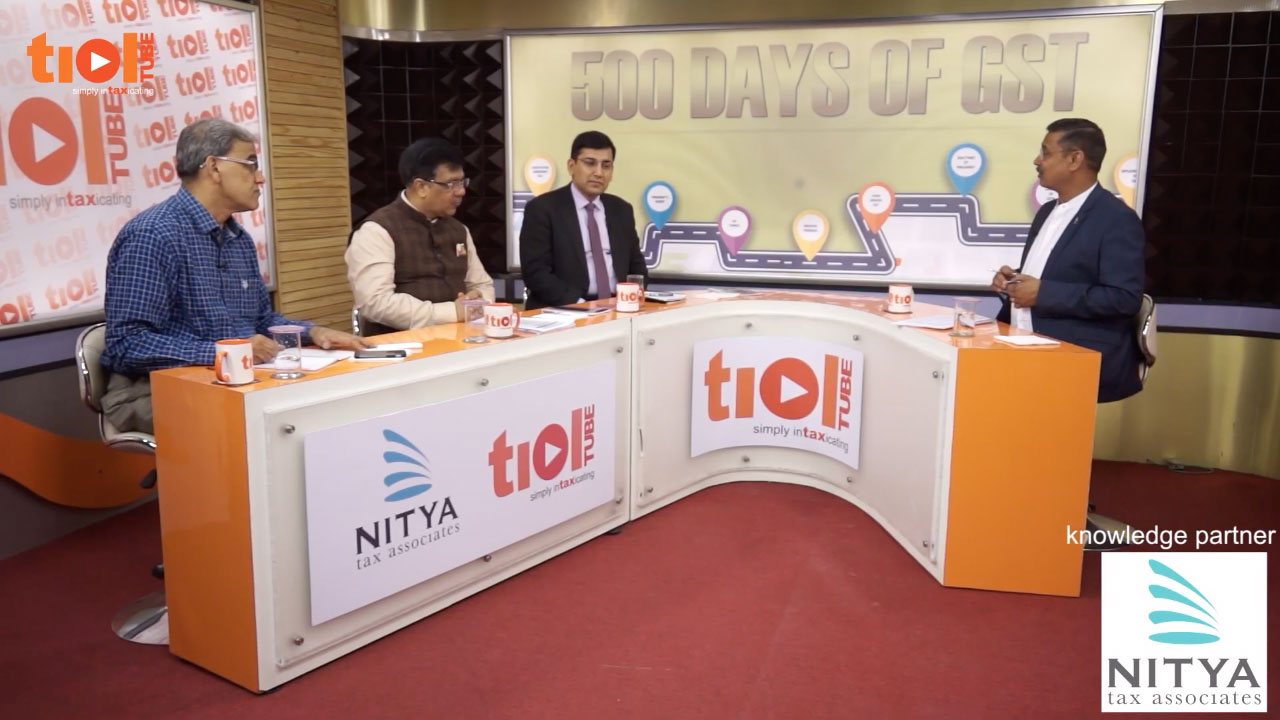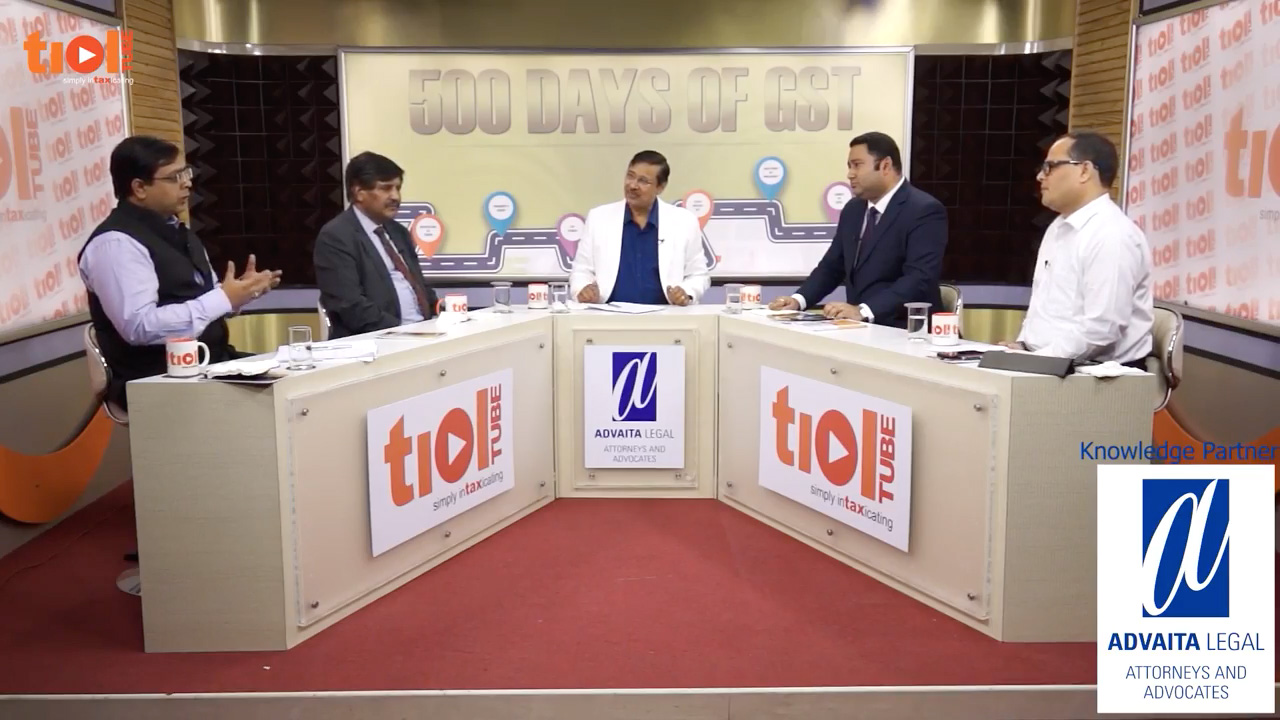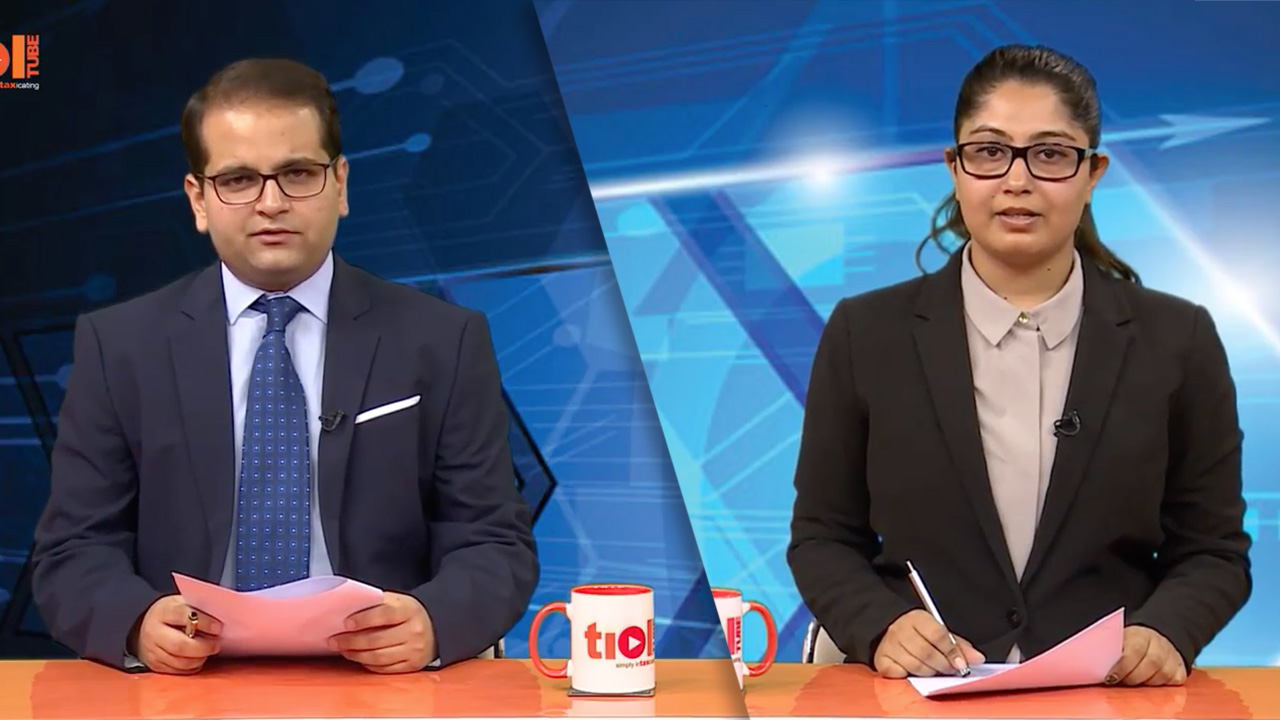SERVICE TAX
2018-TIOL-3674-CESTAT-KOL
Infosys Technologies Ltd Vs CCE & ST
ST - Refund - Rule 5 of CCR, 2004 - Claim rejected on the ground that the appellant had exported exempted services but had failed to observe the requirements specified in rule 6 of CCR, 2004; that refund claims should have been filed on quarterly basis as mandated by the conditions and safeguards specified in notification 5/2006-CX(NT); that since the procedural aspect has not been complied, claim merits rejection; that the appellant being a STPI unit which is a 100% EOU, they ought to have filed such claims once a month - appeal to CESTAT.
Held: Neither in Rule 5 of CCR, 2004 nor in the notification 5/2006-CX(NT) there is any condition which prescribes that the refund will be allowable only in cases where the output services exported is liable for payment of service tax; the interpretation that any service which is exported is an exempt service is without any basis - as for the periodicity of filing the refund claim, from the conditions appended to the notification, it cannot be read to mean that refund will be payable only if the claims are filed on a quarterly/monthly basis - it is clearly in the nature of an option given to the Assessee to file refund claims on a quarterly or monthly basis and failure to do so cannot be a ground for rejection of the claim - impugned order set aside and appeal allowed: CESTAT [para 6, 7]
- Appeal allowed: KOLKATA CESTAT
2018-TIOL-3673-CESTAT-MUM + Case Story
Technova Imaging Systems Pvt Ltd Vs CCE
ST - There is no evidence adduced by department to show that trademarks, know-how, etc. supplied by their foreign collaborators have been registered in India - services received by the appellants cannot be held to be Intellectual Property Right service in view of the clarification issued by CBEC vide Circular 80/2004-ST dated 17 September 2004 - Issue is also no longer res integra in view of Tribunal decisions in Rochem Separation Systems (India) P. Ltd. [2015-TIOL-120-CESTAT-MUM] and Tata Consultancy Services Ltd. [2015-TIOL-2370-CESTAT-MUM] - appellants are not liable to pay service tax – Order set aside and Appeal allowed: CESTAT [para 5.1, 6. 7]
- Appeal allowed: MUMBAI CESTAT 2018-TIOL-3665-CESTAT-MUM
EM Services India Pvt Ltd Vs CCE & ST
ST - Appellant had taken CENVAT credit on the Input services in November 2014/January 2015 on the basis of three invoices pertaining to the period February, March 2013 and June 2014 - on the ground that the appellant had not taken the credit within the prescribed period of six months from the date of issue of invoice as mandated in rule 4(7) of the CCR, 2004, credit denied - appeal to CESTAT.
Held: Since the invoices were issued by the service providers prior to the date of amendment of Rule 4(7) of the CCR, the provisions of unamended rule 4(7) will be applicable for consideration of the dispute - under the earlier rule effective upto 31.08.2014, there were no restrictions/stipulations contained that the assessee should avail the credit within six months from the date of invoice/payment of service tax - such embargo brought in the statute at a later date will not snatch away the statutory right of the assessee to avail CENVAT credit upon compliance of the condition that it had received the taxable services and paid service tax thereon - denial of the credit is against the statute - Tribunal, Chennai in the case of Ashok Leyland [Order no. 1297/2000] has held that any restrictions which deprive the assessee of a valuable right can be only prospective and not retrospectively applicable - no merits in the impugned order, therefore, same is set aside and appeal is allowed: CESTAT [para 6, 7]
- Appeal allowed: MUMBAI CESTAT
2018-TIOL-3664-CESTAT-MUM
FDC Ltd Vs CCGST
ST - Refund claim filed on the ground that appellant had not provided any service to M/s Generic Partners, Australia but only provided documents to them in respect of the products manufactured and supplied to them in order to enable them to apply and obtain marketing authorisation - appellant received amounts as per the Manufacture and Supply Agreement entered with M/s Generic Partners, Australia - Appellant submitting that since the amount received is not towards any service provided, they are eligible for refund of service tax paid on the said amount - claim rejected by original authority on ground of time bar and appeal to Commissioner(A) on ground that principles of natural justice were not followed also met a similar fate - appellant before CESTAT.
Held: Although no SCN was issued, they were heard by the Adjudicating authority - A consistent view taken by Tribunal is that there has to be issuance of SCN since it is mandatory and if the same has not been issued, then it is contrary to law and such proceedings have to be quashed - lacunae of non-issuance of a SCN is not curable and such proceedings are not sustainable - Even if a party has waived the SCN, it will not absolve the department's statutory liability to issue SCN under the relevant provisions - it cannot be said that the appellant had a fair opportunity to defend the case - Revenue cannot bypass such legal requirements - without going into other grounds raised, impugned order is set aside and the appeal is allowed with consequential relief: CESTAT [para 6]
- Appeal allowed: MUMBAI CESTAT
2018-TIOL-3663-CESTAT-DEL
Marson Energy Pvt Ltd Vs CCE & ST
ST - The demand of service tax stand confirmed against assessee under category of Erection Commissionring Installation Services, for the period of 2005-06 to 2007-08, by way of issuance of SCN dated 9th April 2011 - Admittedly, the demand stands raised by invoking longer period of limitation - The only reason advanced in impugned order for invocation of extended period is that the assessee was not paying any service tax and did not file any returns - Such reasoning adopted by Authorities would not advance their case in as much as in each and every case of non payment of service tax and non filing of returns, the extended period would get invoked, thus making the provisions of Section 73 of the Finance Act as infructuous - The assessee having reflected everything in their balance sheet, it cannot be said that the there was any suppression or mis-statement on their part with mala fide intent - In any case and in any view of the fact as per assertion of Revenue themselves that the issue on merits stands referred to the Larger Bench, this fact by itself reflects that there was doubt in the field and clarity of law was lacking - Admittedly there are precedent decisions of Tribunal laying down that on payment of tax on full contracted value by principal contractor, no further requirement would fall upon sub-contractor to pay the tax again - These decisions are sufficient for assessee to entertain a bona fide belief that in as much as the principal contractor has discharged its full tax liability, no further liability would arise against them - The Supreme Court in case of Continental Foundation Joint Venture - 2007-TIOL-152-SC-CX has held that where the matter stand referred to the Larger Bench, doubting the correctness of earlier judgments, there was scope of entertaining a doubt about the views to be taken which rules out application of Section 11(A) of Central Excise Act and extended period of limitation is not available to the Revenue - In terms of the said decision, demand confirmed against them is set aside along with setting aside of interest and imposition of penalty, and allow the appeal on the ground of time bar itself: CESTAT
- Appeal allowed: DELHI CESTAT
CENTRAL EXCISE
2018-TIOL-2535-HC-DEL-CX
CST Vs Dboi Global Services Pvt Ltd
CX - Whether the input services viz. event management services, pandal or shamiana contractor's services, mandap keeper services and health and fitness services have any relation to the export of services done by assessee, thus allowing for refund against export of output services in respect of said input services - The Tribunal relied on various orders of its co-ordinate benches that all these services would be considered to be input services - The submissions on behalf of Revenue that the definition of input services under CCR, 2004 would as be satisfied only when it is shown to be necessary for providing output services - This is not the legislative mandate - The only requirement under CCR, 2004 to satisfy the definition of input services is the use in providing of output services - Therefore, where the input services are used in providing output services and there is some nexus, then invoking the test of necessity would be adding words to the rule which is not permissible in a fiscal statute - Thus, the view of Tribunal is a possible view and calls for no interference - Consequently, the question as proposed does not give rise to any question of law, thus, not entertained: HC
- Appeal dismissed: DELHI CESTAT
2018-TIOL-3661-CESTAT-AHM
Indian Oil Corporation Ltd Vs CCE & ST
CX - The assessee transport fuel from their factory to their warehouse under ARE-3 procedure - The same Pipeline is used to transport four different products - Between any two in different products of SKO transported - Consequently, at the warehouse the product received is partially mixed with SKO - The assessee pay duty at the warehouse on the quantity received at the warehouse - The matter earlier heard by Tribunal and remanded - The product dispatch from factory and that received in the warehouse were different both in quality as well as quantity - The ULMS and HSD would have some intermixing of SKO, however, as the norms of Aviation Turbine Fuel (ATF) being very stringent no intermixing SKO was allowed in ATF - The demand confirmed is essentially on the quantities of shortage of one product without considering the excess in another product by refusal to adjust these differences - Reliance has been placed on the commodities manual of Petroleum product and the Board Circular referred therein and it has seen observed that latest instruction of Board dated 23.09.2002 reverses the earlier position - The Circular issue by CBEC dated 23.09.2002 does not supersedes or rescind the earlier Circular - A Perusal of Clause-H of said Circular shows that the shortages are to be assessed on the basis of highest rate - The impugned order does not reconcile the excess with shortages before arriving at final shortage and to that extent is in the violation of direction in remand - The impugned order therefore set aside and once again remanded to original adjudicating authority: CESTAT
- Matter remanded: AHMEDABAD CESTAT
2018-TIOL-3660-CESTAT-MAD
CCE Vs Maruti Paints And Chemicals Ltd
CX - The assessee was engaged in manufacture of Paints and Puttis - It appeared to Department that the assessee was wrongly availing input service credit distributed by M/s. MRF Ltd. Speciality Coatings Division, and utilized the same for discharging the duty liability on final products - The assessee being manufacturer of paints, also undertakes manufacture on job work - M/s. MRF Ltd. having engaged the assessee for such job work, it also distributed the input credit, to be availed by assessee - The adjudicating authority observed that the assessee and M/s. MRF Ltd. being separate legal entities, the ISD invoice of M/s. MRF Ltd. could not empower M/s. MRF to distribute it to the assessee to avail input credit - The definition of 'input service distributor' cannot include M/s. MRF Ltd. or its factory premises as per the definition under Rule 2(m) of CCR, 2004 - The producer or manufacturer of final product is the assessee - It is also not the case that assessee is a unit or branch of M/s. MRF Ltd. - On merits, no valid reasons found to sustain the findings of Commissioner (A) - On the question of invoking extended period of limitation, after initial objection in 2006, the CERA also did not raise any objection during its audit in 2009 and the SCN, having been issued much thereafter, i.e, in the year 2010, no justifiable reason found to allege suppression of facts and, therefore, the findings of Commissioner (A) sustained - Though Revenue has been able to convince on merits, however no infirmity found in the findings of lower appellate authority that the proceedings are also hit by limitation: CESTAT
- Appeal dismissed: CHENNAI CESTAT
2018-TIOL-3659-CESTAT-DEL
CCE & ST Vs Hindustan Zinc Ltd
CX - The assessee is engaged in manufacture of Bulk, lead and zinc concentrates - Department observed that they are not making full payment of value of input services received by them rather are retaining the part payment of service provider - Thus, it was alleged that assessee has wrongly availed the Cenvat Credit of Service Tax paid by them on the value of goods - Rule 4 (7) of CCR stands amended w.e.f. 1st April, 2011 and after the said amendment taking of Cenvat Credit is not linked with the payment of invoice to the service provider but it is linked with the invoice/bill/challan of input service - Though the grievance of Department seems that irrespective, the payment was still to be made within 3 months, since the assessee had paid the entire Service Tax on which they were liable for taking the credit i.e. on the amount as mentioned in the Bill/invoice, they were entitled to avail credit - The circular No.122/03/2010-ST, further clarifies the situation that the Service Tax paid is allowed as credit - There is a clear recitation that irrespective of retention, the amount was paid at the end of stipulated period after the completion of the project - Till date, there is nothing on record to prove that the payment in accordance of Rule 4 (7) of CCR was not made by assessee - On the contrary, it still is the admitted fact that assessee discharged his liability at the time of making payment to the contractor itself and the credit was availed only after the said discharge - The perusal of decisions in M/s. Hindustan Zinc Ltd - 2018-TIOL-2574-CESTAT-DEL and Hindustan Zinc Ltd. - 2017-TIOL-4243-CESTAT-DEL thereof makes it clear that the facts of the present case are similar to those cases even the assessee is also the same - Therefore, no hesitation to follow the said decision: CESTAT
- Appeal dismissed: DELHI CESTAT
CUSTOMS
2018-TIOL-2536-HC-DEL-CUS
Great Eastern Idtech Pvt Ltd Vs UoI
Cus - The petitioner's grievance is against the directions issued by Customs Authority suspending the empanelment as an approved RFID E-Seal vendor - Pursuant to CBEC circulars and notifications, RFID E-Seals were directed to be fixed on self-stuffed containers by exporters - To facilitate the process, certain vendors were named by CBEC as approved sellers, the petitioner being one of them - The petitioner was directed to cease supplying the seals to the exporters and also recall seals already supplied/sold - Its grievance is that the suspension howsoever temporary has brought about devastation of its commercial reputation besides resulting in a virtual blacklisting - The action taken by respondent is rather precipitate - What ought to have been done was that to supply whatever adverse material the respondent had considered, which led them to issue the impugned letters, including technical specifications which the petitioner was alleged to have violated, to it - The respondents are directed to furnish the relevant materials including test report and the other standards/technical specification, which required that the e-seal ought not to be readable in the unlocked position - The respondent is granted time, not later than 5 days to furnish the aforesaid material to petitioner to enable them to submit a proper representation: HC
- Writ petition disposed of: DELHI HIGH COURT
2018-TIOL-2532-HC-DEL-CUS
PR CIT Vs Raj Kr Batra (Music Place)
Cus - Whether the Tribunal was justified in remanding the matter for adjudication to the concerned official to first decide the issue of jurisdiction after the appeal pending in Supreme Court against the reported judgment in case of Mangli Impex Limited is decided - In the identical circumstances, where a similar issue was sought to be urged, this Court had passed an order in a batch of appeals - Following the same, impugned order is hereby set aside and the matters are remitted to the Tribunal which shall proceed to examine and decide the merits of appeals without being influenced by decision of this Court in Mangli Impex - The Court, at the same time, like in the other cases, expresses no opinion on the merits or procedure that the Tribunal should adopt and follow: HC
- Appeals partly allowed: DELHI HIGH COURT
2018-TIOL-3662-CESTAT-HYD
CCE Vs Ashapura Minechem Ltd
Cus - Issue involved is regarding refund claims filed by assessee in respect of iron ore fines exported through Krishnapatnam Port - The argument of Revenue in these cases against sanctioning of the refund is only on the ground that the shipping bill was not challenged - It is seen from the records that shipping bills in all these appeals were assessed with the remark that export duty is collected subject to outcome of Dy. Chief Chemist report - Assessee in these two cases also paid the export duty at Rs. 300/- per MT and the report of the Dy. Chief Chemist clearly indicates that Fe content was less than 62% only and the assessee is required to discharge export duty only at Rs. 50/- per MT - The adjudicating authority has correctly sanctioned the refund since the shipping bill was assessed and export duty paid subject to output of the Dy. Chief Chemist’s report, has to be held as being provisional when the duty was paid and subsequently finalized which resulted in refund - Orders of both the lower authorities are correct: CESTAT
- Appeals rejected: HYDERABAD CESTAT
|




 by Shailendera Kumar
by Shailendera Kumar



